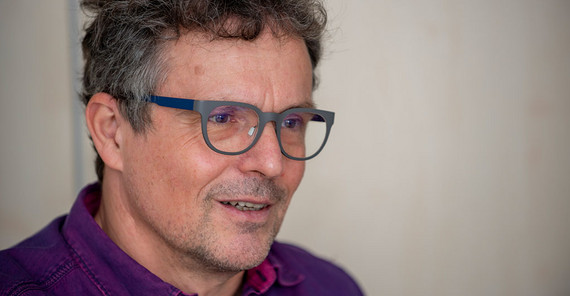Clasp is a Conflict-Driven Answer Set Solver. “A universal problem-solver,” says Torsten Schaub. “It solves a wide range of combinatory optimization problems, the kind that are particularly knowledge-intensive and contain several variables.” And this is exactly what makes the program an artificial intelligence. Previously, software only did exactly those tasks for which it was programmed; AI systems like Clasp, however, unfold their potential only when a problem is “fed” into it. “A normal computer program is not intelligent. It doesn’t make decisions; the program code specifies the path to the solution,” explains Schaub. But Clasp is different. “We only provide the problem, and Clasp finds the path to a solution on its own.” This is possible because the system consists of mathematical algorithms that learn from mistakes. Clasp is not only able to overcome these mistakes; it actually needs them. “The system attempts to run into conflicts in the early stages of a task – and then it draws conclusions from these conflicts,” explains Schaub. If a conflict arises, Clasp jumps back immediately to its source, adds the new information to the problem, and continues working.
Clasp and a few other “applied” solver systems were open-source code from the beginning and free to everyone. They have been downloaded millions of times over the years. “In the meantime, our software is so broadly distributed that I no longer have any idea who all is using it,” says Schaub. Clasp is well-known, however, for its use in configuring the open operating system Linux. And the business world has also recognized the system’s potential. “At some point we noticed that large companies such as Siemens or Schlumberger, the world’s largest company for oil exploration and oil field service, are using our system,” says Schaub. “So we thought that it was time to make sure that our research found an application.”
In 2018, Schaub founded Potassco Solutions, a company that works on precisely this challenge. The core team came from Schaub’s research group. Dr. Sven Thiele for example had studied in Potsdam and completed his doctorate, and after finishing a post-doc abroad, he joined Potassco Solutions. As an undergraduate at the University of Potsdam, Thiele had already worked on solver development, using these tools in his later research for a broad range of problems. “In the process, I of course noticed a lot of things that we might want to improve. However, I didn’t have much time then,” says Thiele. “Potassco Solutions offers us the opportunity to develop our research results, beyond basic research, into the professional tools that I’ve always wanted. This also benefits our research community.” Above all, it also pays off for the scientific group to further develop practical applications for Clasp. “For us, application drives research,” says Schaub. “And although this ‘application-oriented’ research sometimes has a bad reputation in academic circles, I can say that as soon as an application becomes relevant, then different, more difficult questions become possible, which makes for more interesting research.”
As a researcher, Schaub had long shied away from founding his own company. This is why Schaub views the support from UP Transfer GmbH as a stroke of luck. This subsidiary firm of the University of Potsdam deals with knowledge and technology transfer, and takes care of all the book-keeping and other organizational questions for Potassco Solutions so that the team can focus its energies on product development.
Clasp has long since passed its commercial trial by fire. In one of the first projects for a major firm, Clasp was supposed to create a shift plan for employees of the Swiss National Rail System in early, mid-day and late shifts. Clasp had to take multiple company parameters into account: full-time, part-time, holiday leave, system load at various times of the day, and much more. Previously, it took one employee a week to work out the schedule; Clasp, however, was able to do it in 30 minutes. “The finished plan was completely in order, including the observance of working guidelines," says Thiele. The result was so persuasive that the Swiss National Rail System is now using Clasp for train scheduling, the planning of open-plan offices, and the deployment of construction machinery. “Logistic decisions like these are similar to one another,” explains Schaub. “Up to now, these decisions were made in many firms by highly qualified, experience people.” Clasp is able, however to solve these complex problems at far greater speed, allowing employees to take on other tasks that cannot be automated. “The core of our technology is that it captures this knowledge and automatically makes it better.” Currently, Schaub is working on starting up more cooperative ventures in Brandenburg. “It’s important to me that our research transfer also benefits the region. I hope that we’re preaching to the choir once we get our foot in the door.”
This text originally appeared in the University Magazine Portal Transfer 2021/22 (PDF).

